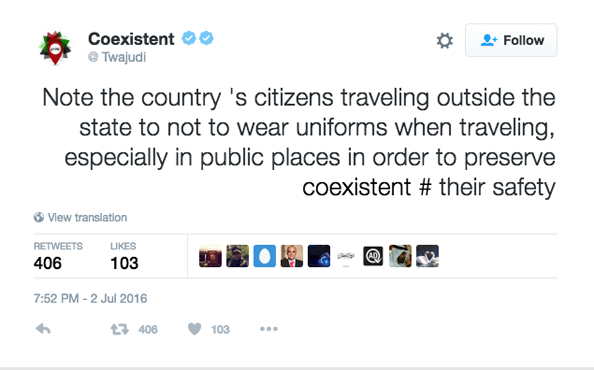They say the way someone dresses is a reflection of their identity, personality and beliefs so to tell someone not to wear their traditional dress is telling them not to be themselves. Seems unfair, right? Well, that’s exactly what’s happening with Emirati nationals.
Following the wrongful arrest of a businessman visiting Ohio in the United States – he was wrestled to the ground and held as an Islamic State suspect because a woman panicked when she saw him wearing his traditional white robes – the UAE’s Ministry of Foreign Affairs and International Cooperation has told its citizens to leave their formal dress at home when travelling to the States.

Ahmed Al Menhali, was arrested on Wednesday in Avon, Ohio while wearing traditional clothes after a hotel worker became suspicious and felt he had links to ISIL. Mr Menhali was in the city after having heart surgery in the UAE following a stroke. He told The National: “I always wear my traditional clothes during all my travels and never encountered such a thing.”
Read: Arab Women Not Represented In New Barbie Line-Up
Read: Life Post 9/11 As An American Muslim
Read: Video – Abaya Wearing Woman Wows Dubai Crowd With Football Skills
Since the incident the ministry has advised men not to wear the kandura when travelling. But, it’s not just men who have been warned. Assistant Under-Secretary for Consular Affairs at the UAE Ministry of Foreign Affairs and International Cooperation, Ahmed Elham Al Dhaheri, has also told women to abide the burqa ban in European countries and cities, which prohibit the wearing of the veil in public institutions and places, to avoid legal repercussions or fines arising from the violation of this law.

Emiratis have been warned not to wear their national dress when travelling abroad
The UAE official also advised all travelling UAE citizens to register themselves and their family members on the official Ministry’s website mofa.gov.ae, a service managed by the ministry and missions abroad to communicate with the travellers in cases of emergency.
The police have be criticised for the way they manhandled Mr Menhali and the woman who made the false claim could face charges.
Image: Getty











